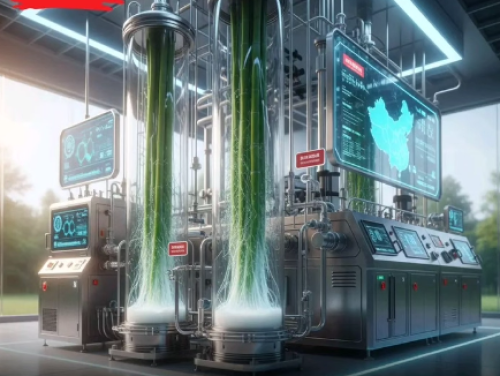In a landmark scientific breakthrough with global environmental implications, researchers in China have announced the development of a next-generation bamboo-based plastic that is not only extremely strong and durable, but also completely biodegradable within 50 days.
Unveiled at the National Green Materials Research Facility in Beijing, the new material—dubbed B-50 BioBamboo Polymer—is being hailed as one of the most promising replacements for conventional petroleum-based plastics, which typically remain in the environment for hundreds of years.
A Technology Rooted in Nature, Engineered Through Innovation
The research team combined nanocellulose extracted from bamboo with an advanced biodegradable polymer matrix. Using a controlled fermentation process inside specialized bioreactors, the bamboo fibers are transformed into a material that mirrors the strength of traditional plastics while maintaining the capacity to rapidly decompose under natural conditions.
Scientists report that the material can withstand high pressure, temperature fluctuations, and structural stress—making it suitable for packaging, consumer products, agriculture, medical uses, and even automotive components.
50-Day Breakdown: A New Benchmark for Eco-Materials
Extensive lab testing revealed that the new bamboo plastic begins its breakdown process within days when exposed to soil microbes, completing full biodegradation in about 50 days—a dramatic improvement compared to PLA bioplastics, which can take several months under industrial composting conditions.
Environmental experts say this development could significantly reduce global plastic pollution, especially in regions where waste collection systems are limited.
Sustainable, Scalable, and Globally Transformative
China’s bamboo reserves—among the largest in the world—give this innovation a powerful sustainability advantage. Because bamboo grows rapidly without fertilizer or pesticides, it offers a renewable resource base capable of supporting mass production.
Government officials confirmed that large-scale pilot manufacturing plants are already under construction in Zhejiang and Sichuan provinces, with commercial release expected within the next two years.
A Step Forward for Environmental Recovery
International environmental groups have praised the discovery, noting that the bamboo plastic could help combat ocean pollution, reduce landfill burdens, and offer developing nations a cost-effective green alternative.
If adopted globally, scientists estimate the technology could cut conventional plastic production by up to 30% over the next decade.
China’s bamboo bioplastic breakthrough is more than a scientific milestone—it’s a blueprint for how innovation, sustainability, and natural resources can come together to reshape the future of the planet.







